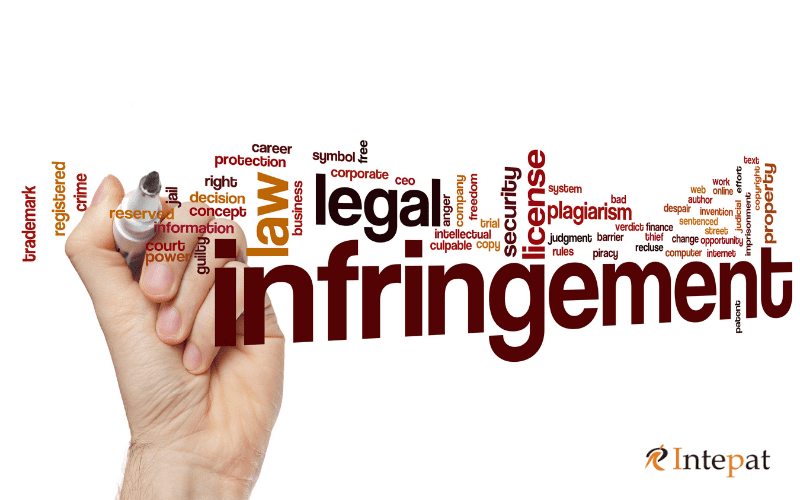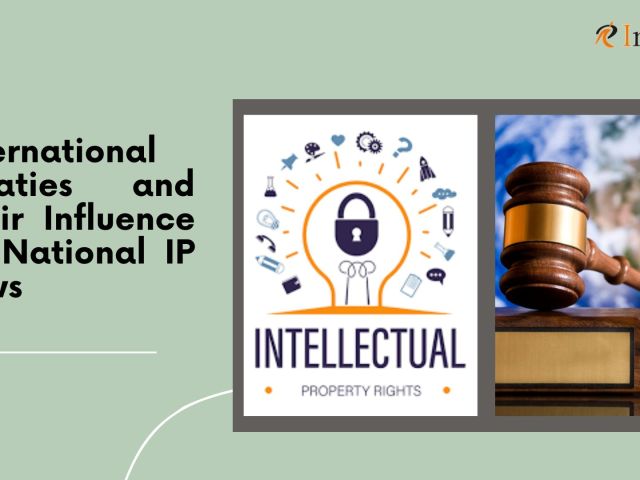Intellectual Property Rights (IPR) Infringements
Intellectual property infringement is basically using someone else’s Intellectual property without the consent of the owner of that Intellectual Property. When someone acts Ultravires, he is breaching the law, and infringement is “a crime less serious than a felony.”
Here intellectual property infringement could be trademark infringement, copyright infringement, patent infringement, etc.
IP laws in India are governed and protected under the Patents Act, 1970; Trademarks Act, 1999; Copyrights Act, 1957; Designs Act, 2001, etc. Civil and Criminal remedies mentioned under these acts are of utmost importance for IP rights enforcement.
In this context, the principal function of the judiciary is to provide legal remedies against the infringement of personal and property rights of persons. Infringement of intellectual property rights is considered a tortious invasion of property.
The courts in India have the power to grant relief in cases about the violation and/or infringement of intellectual property rights. The judiciary not only does the adjudication of intellectual property matters, but it also interprets several IP statutes for better understanding.
The various IP laws in India mention the provisions of civil and criminal remedies for IP rights enforcement. These civil and criminal remedies are distinct and independent, and also, they can be availed simultaneously.
In this context, it can also be a viable point to mention that provisions of the Indian Evidence Act and Arbitration and conciliation act can also be exploited to dispose of IP-related cases. Expert opinion can also be sought to understand a point pivotal to a case or to understand some facts pertaining to a technology/art, as mentioned under section 45 of the Indian evidence act.
Civil Remedies
Civil remedies can be enforced upon IP infringement by filing a suit for infringement and/or passing off (in case of unregistered trademarks) in the competent court. Following reliefs of civil nature can be granted:
1. Injunction
2. Anton Pillar orders or Ex-parte orders
3. Orders for delivery up/surrender or seize and destroy
4. An award of costs and damages
5. Tracing orders
An injunction prohibits an action by a party to a lawsuit. If the plaintiff establishes that the prima facie case is in his favor, an injunction is granted.
Anton Pillar’s orders permit the plaintiff’s counsel to enter the infringer’s premises and seize evidence of infringement. This order is passed when there is a serious danger of removal/destruction of the infringing articles. Such an order is granted on an ex-parte application. Infringing goods are delivered to the plaintiff or destroyed if the orders of delivery-up and destruction are passed.
Under tracing remedies, an infringer can be ordered to provide details like where he got his supplies of infringing goods. Failure to provide such information is taken as contempt of court.
An award of cost and damages are two mutually exclusive remedies, and damages are granted to compensate the losses incurred by the plaintiff on account of the defendant’s infringing act. In contrast, actual amounts of profits are handed over to the plaintiff as the second measure.
Criminal Remedies
Criminal remedies in India are provided only for Trademarks and copyrights.
Section 63 of the Copyright Act, 1957 deals with ‘Offences of Infringement of copyright or other rights conferred by the act.’ It mentions about imprisonment for a term not less than six months which may extend up to 3 years, and a fine of not less than 50,000 rupees which may extend up to 2 lakh rupees, as punishment if found guilty in a copyright infringement case. This term and fine can be increased according to the provisions of Section 63A of the Copyright Act 1957.
Chapter XII of the Trademarks Act 1999 deals with offenses, penalties, and procedures for trademark infringement. Here on account of trademark infringement, the punishment can go as high as imprisonment up to 3 years with or without a fine. The fine ranges from 50,000 to 2 lakh rupees. This term and fine can be increased per the provisions of Section 105 of the Trademarks Act, 1999.
Indian Patent Act 1970 also considers falsification of entries in the register, claiming patent rights in an unauthorized way, etc., to be punishable criminal offenses. Such penalties are mentioned under Chapter XX of the Indian Patents Act, 1970.




